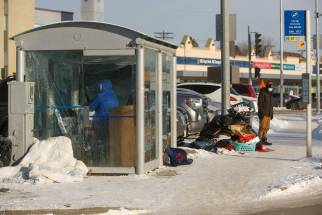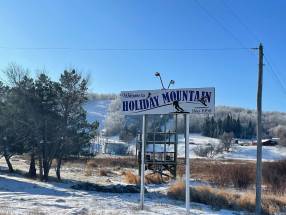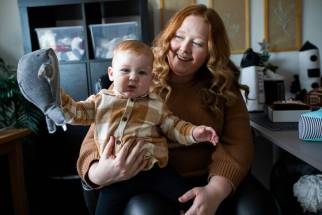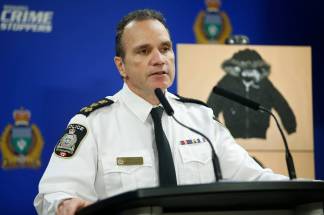Discarded, disregarded Brutalized and shunned at the end of their lives, we failed to provide these vulnerable women even the most basic supports
Read this article for free:
or
Already have an account? Log in here »
To continue reading, please subscribe:
Monthly Digital Subscription
$0 for the first 4 weeks*
- Enjoy unlimited reading on winnipegfreepress.com
- Read the E-Edition, our digital replica newspaper
- Access News Break, our award-winning app
- Play interactive puzzles
*No charge for 4 weeks then price increases to the regular rate of $19.00 plus GST every four weeks. Offer available to new and qualified returning subscribers only. Cancel any time.
Monthly Digital Subscription
$4.75/week*
- Enjoy unlimited reading on winnipegfreepress.com
- Read the E-Edition, our digital replica newspaper
- Access News Break, our award-winning app
- Play interactive puzzles
*Billed as $19 plus GST every four weeks. Cancel any time.
To continue reading, please subscribe:
Add Free Press access to your Brandon Sun subscription for only an additional
$1 for the first 4 weeks*
*Your next subscription payment will increase by $1.00 and you will be charged $16.99 plus GST for four weeks. After four weeks, your payment will increase to $23.99 plus GST every four weeks.
Read unlimited articles for free today:
or
Already have an account? Log in here »
Hey there, time traveller!
This article was published 09/12/2022 (1096 days ago), so information in it may no longer be current.
The news that dominated this week was about Indigenous women’s bodies, languishing in places where bodies shouldn’t be. A landfill. A bus shelter. At least three of their lives were stolen through violence, though whatever pushed the fourth to find refuge under a pile of blankets on a -22 C night could be called violence of a different kind.
On the surface, these stories are not directly related. In a garbage dump north of the city, layers of clay and household debris are believed to give a final shroud to Morgan Harris, 39, and Marcedes Myran, 26, both victims of alleged serial killer Jeremy Skibicki. We don’t know where lies another, yet-unidentified victim, whom elders have named Buffalo Woman.
Earlier this month, Chief Danny Smith stated police will not search for them in the dump, saying there’s no hope of finding them seven months after they went missing. I do not know anything about the logistics of searching landfills for human remains. I do know that the act of giving our dead a dignified rest is as sacred to people as anything can be; in its absence, an unimaginable compounding of grief.
There are too many families in Winnipeg who know that pain. Too many who know or fear their missing or murdered loved ones have met the same fate. Too many stories that are different in the fine details, but similar in the broad strokes: Harris was often homeless, and people who know Skibicki said they often saw him with women who frequented city shelters.
MIKE DEAL / WINNIPEG FREE PRESS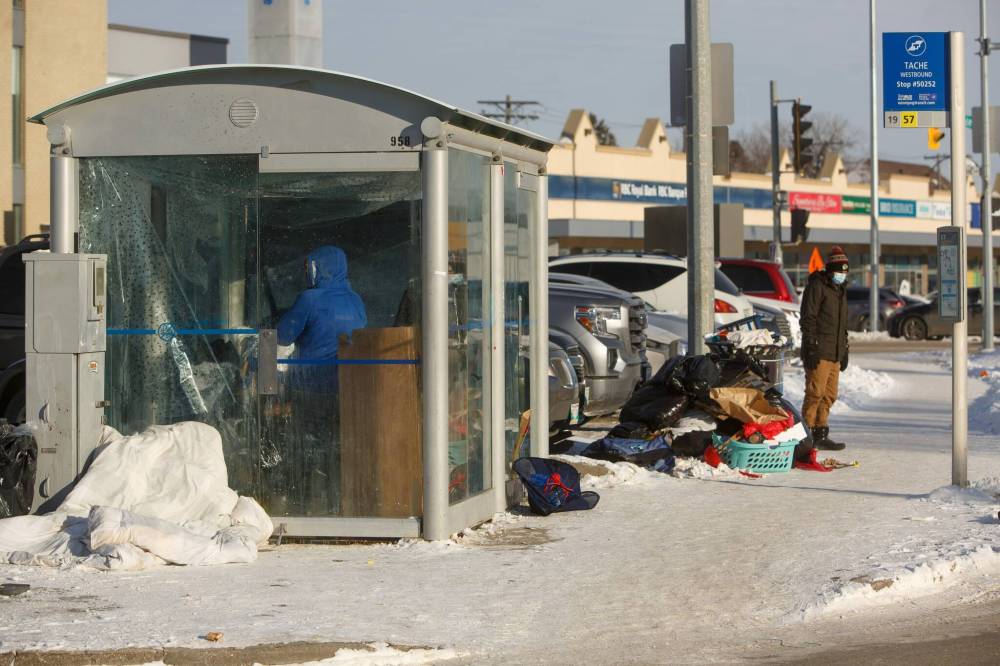
This too is an old story: killers often target the most vulnerable, the ones they think they can get away with killing without anyone rushing quickly to find them. So over and over again, we end up with stories about bodies where bodies shouldn’t be.
At least Kayla Rae’s family gets her body back. Hers was never missing. The 27-year-old from North Spirit Lake First Nation in northwestern Ontario was found by outreach workers Monday night, lying under blankets in a bus shelter on Goulet. The workers tried to save her, but it was likely already too late. Her family is now waiting for an autopsy.
This week, her mother told the Free Press that she doesn’t think her daughter had been sleeping in bus shelters; she did have a safe place to stay with her aunt. But she also struggled with addiction.
She died only a short walk from St. Boniface Hospital. Whatever ended her life, help was close, but still beyond her reach.
There’s a lot that can be said about this. None of it would be new. Which is why I find that the longer I live in Winnipeg, the tighter my thoughts on these incidents become until now — all I need are two sentences to explain my thoughts, both of them short: nobody should have to die in a bus shelter. And addiction shouldn’t have to mean being pushed into danger.
SUPPLIED Kayla Rae, centre, with her sister, Kesha, left, and her mom, Joanne.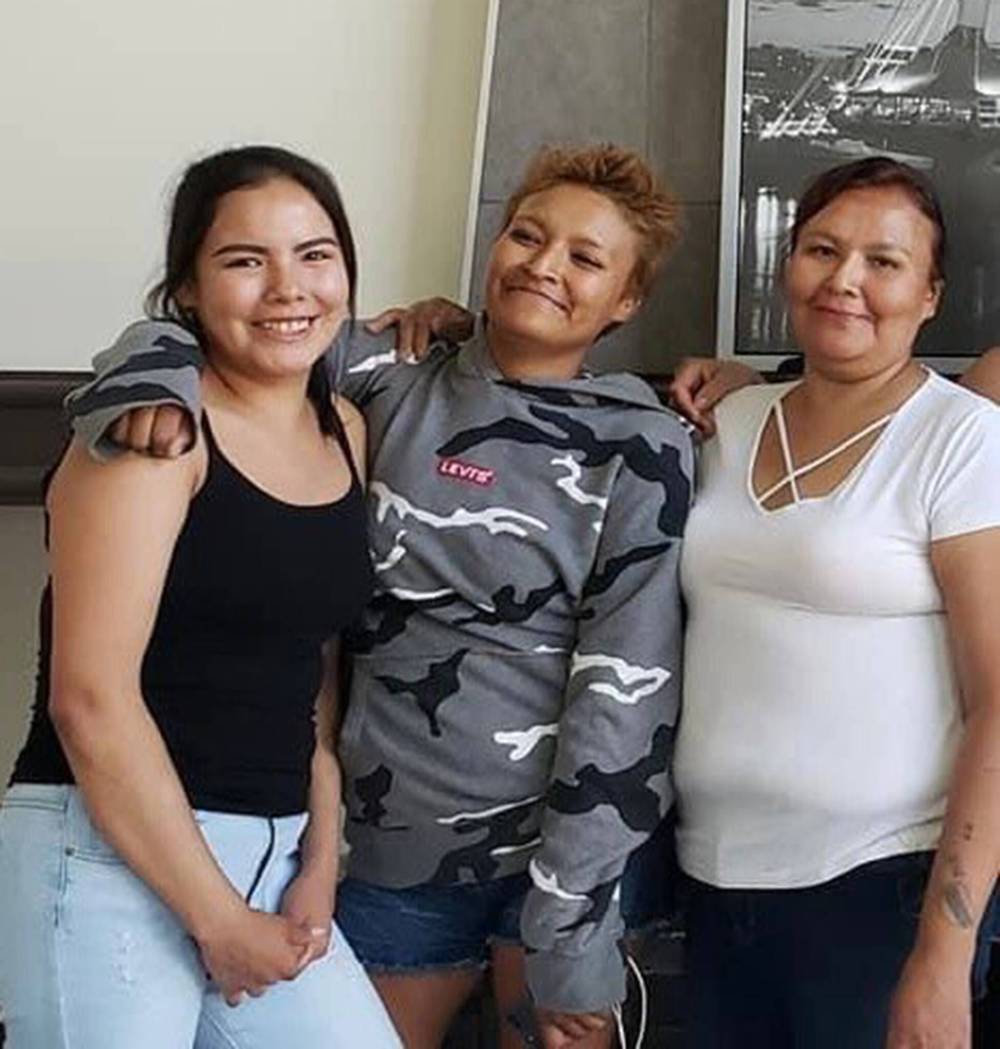
Because if there is a common thread in these two heart-wrenching stories, it is the sheer vulnerability with which too many people in Winnipeg live. Vulnerable because they’ve been hurt, because they’re carrying trauma, because the ways they find to deal with the pain push them further to the fringes. Vulnerable because they don’t have enough safe places to be.
I started writing this column before we knew Rae’s name, or her circumstances. At that time, it seemed likely she had been spending more nights in bus shelters, and the first thing that came to mind was the tragedy that she had no home in which she’d be safe. Now, we know that isn’t the case, but I’d like to continue with that original thought anyway.
Stable housing might not have helped Rae, given the specifics of her situation. But she isn’t the first to spend her last hours suffering in a frigid bus shelter, and she won’t be the last unless things change. Meanwhile, stable housing might have given more safety to some of Skibicki’s alleged victims, given the information we have about where he met women.
Without housing, a person lacks even the most basic of safeties: safety from the elements, safety from violence. They have to find shelter where they can, and with whom they can. They lack options to get away. A person without secure housing is one who will always be vulnerable, one who will always be too perilously balanced between life and death.
Because if there is a common thread in these two heart-wrenching stories, it is the sheer vulnerability with which too many people in Winnipeg live.
And housing costs money, but it’s also straightforward. It’s four walls and a roof, some plumbing, some windows. It doesn’t have to fix every trauma and grotesquely knotted social issue that hurts people in this city. It doesn’t have to figure out why some folks end up struggling with addiction, and some don’t. It has to do just one thing, which is be a house.
There are a lot of people doing heroic work in this city to try and keep people safe. A lot of street outreach workers, shelter workers, organizations doing everything they can. We see a fair bit of their work in the media as of late, but what makes it into the public eye is only the tip of the iceberg; most of that work grinds on every day and through every night.
But it’s not enough. As long as we have to knit together safety nets from scant resources available, there will always be holes big enough for people to fall through. Or, to put it another way: why should we have to rely on social safety nets to find folks warmth when they need it, when we could offer something more tangible, such as four walls and a roof?
As long as we have to knit together safety nets from scant resources available, there will always be holes big enough for people to fall through.
In the meantime, we’ll have to continue to look out for each other.
If you see someone who looks like they could use a helpful person with access to resources to check in on them, you can call 211 anywhere in Winnipeg, at any time of day or night. They can connect you to outreach vans operating in that area. If you are downtown, you can also call the Downtown Community Safety Partnership’s 24-7 line at 204-947-DCSP (3277).
Main Street Project has an outreach van that can bring people to emergency shelters, among other supports. You can call them anytime at 204-232-5217. A humble suggestion: if you have 10 seconds to spare right now, use them to save these numbers in your phone, so you don’t need to fumble with Googling them on a cold night.
melissa.martin@freepress.mb.ca
Our newsroom depends on a growing audience of readers to power our journalism. If you are not a paid reader, please consider becoming a subscriber.
Our newsroom depends on its audience of readers to power our journalism. Thank you for your support.




















